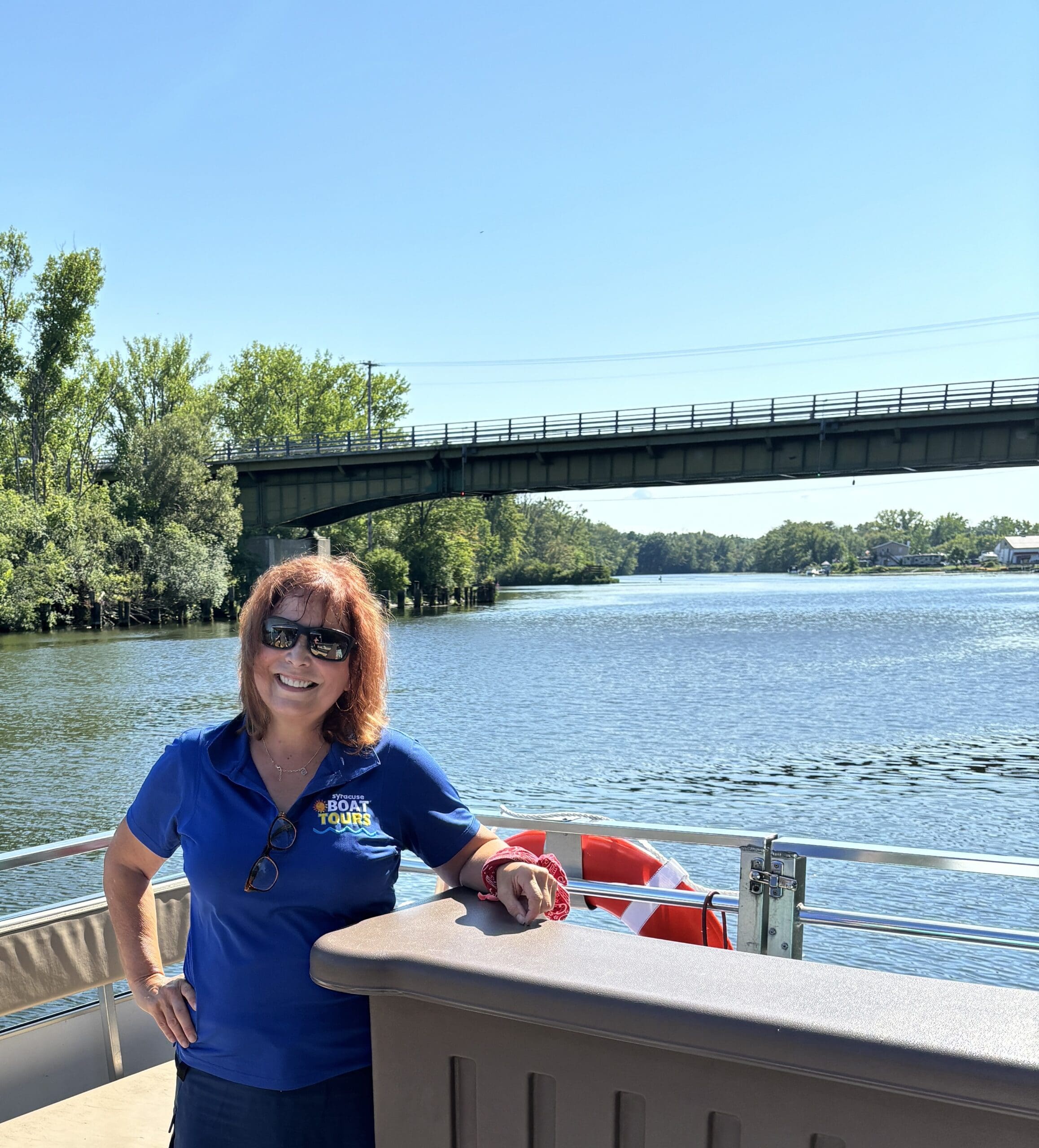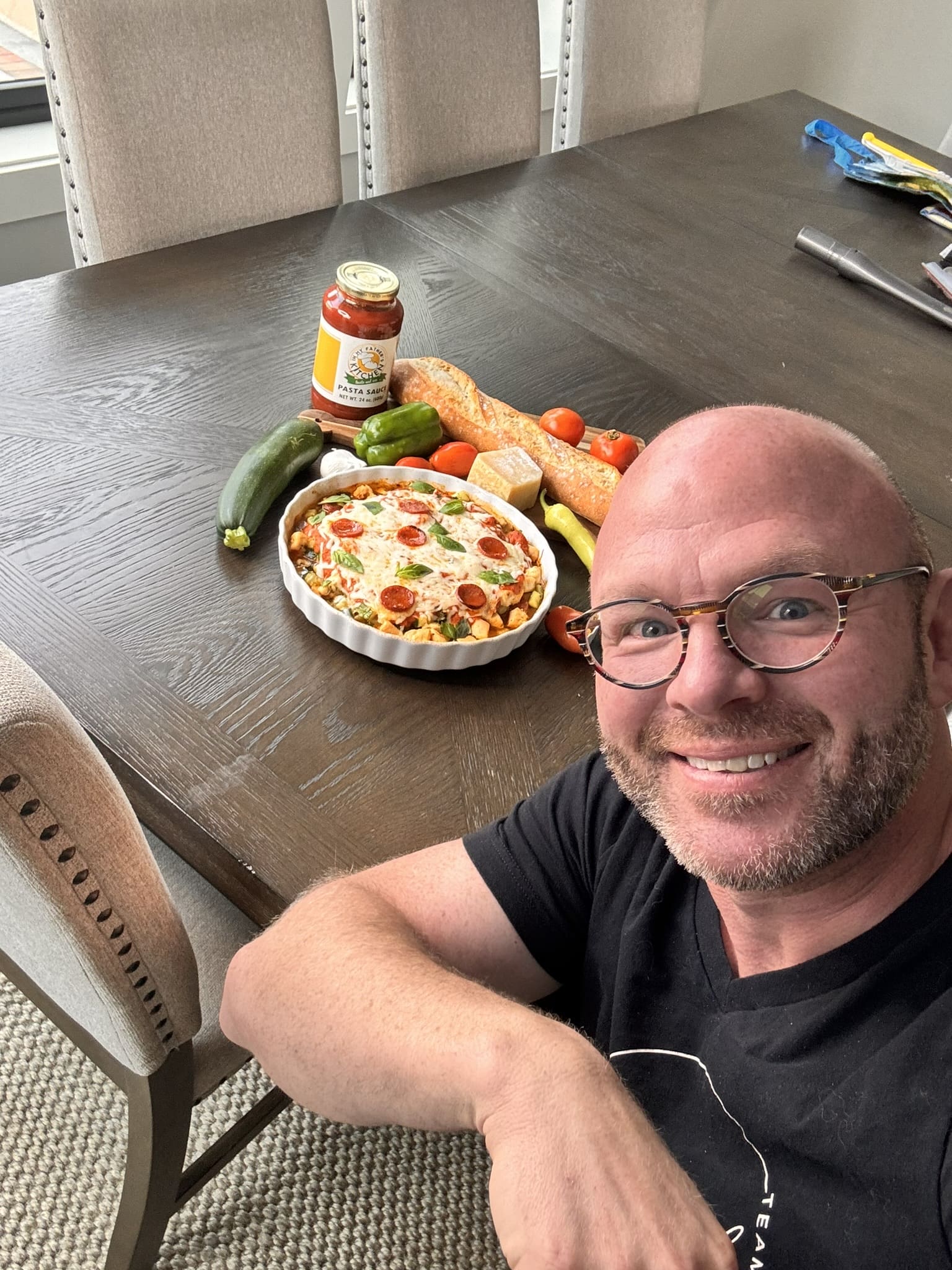The Power of Failure
By Lorna Oppedisano| Photography by Alexis Emm
Sue Foster, Manlius Pebble Hill School science department chair, occasionally poses a theoretical, big picture question to her students.
“What would you do if you knew you couldn’t fail?” she asks. “If you were guaranteed success, what would you do that you’re not currently doing?”
Her goal is to lessen the seemingly inherent fear of failure that comes when a person stops being an “unabashed toddler, just running around, curious about everything,” she said with a smile.
“How can I construct an environment such that you let more of that out? Because I know it’s in there,” she hypothesized about her students and classroom. “How can I help you be more of that way?”
Sue grew up in Gouverneur, N.Y., and attended Hamilton College. Originally intending to study pre-med, she knew she wanted to end up working with people. But one day, she was seated in the geology department studying for her organic chemistry class — “they had really nice rooms,” she explained — when the chair of the geology department walked in.
“Have you taken a geology class yet?” he asked her.
She replied that she hadn’t.
“Just take one,” he suggested. “Take one.”
Sue took his advice, and she was hooked. She changed her major to a dual degree in biology and geology.
After finishing her studies, Sue began her teaching career with two years at Wilmington Friends School in Delaware before moving back to New York state to be closer to family.
She’d loved the atmosphere of respect and equality at Friends, and had heard equally good things about the teaching environment at MPH. She interviewed and was hired.
“I was going to stay a year, and that was ’91,” she reflected with a laugh.
Sue is now in her second run as department chair, and still loves the freedom of MPH. With administrative support, she’s designed a number of classes, including a semester-long geology of Central New York course and a semester-long forensics class, both of which she teaches to juniors and seniors.
“It feeds your own intellect to know that there’s that kind of freedom,” she said.
Along with those courses, Sue teaches a sixth grade survey class, covering biology, chemistry, physics and earth science, as well as a ninth grade biology class. Her students joke that she’s like quality control, since she gets to see them grow throughout their high school careers, she laughed.
Since MPH is a private institution that doesn’t follow traditional curriculum like districts in the area, Sue has the luxury and freedom of time, she said.
For example, each of the sixth-graders spend a chunk of their year focused on an individual experiment. It helps them experience the value of their own questions, Sue explained.
“That question has inherent value to you, and how you see the world, how you think about things,” she said. “So yeah, we’re going to spend three months thinking about that one question. I just think that’s so powerful.”
That freedom of time helps Sue instill upon her students a topic she hopes they’ll take with them after graduating: a constructive approach to the notion of failure.
In science and nature, failure doesn’t exist, Sue explained. A thought process might need to be adjusted, or an experiment repeated a number of times, but nature is going to keep unfolding, she said.
“I think to extract some of that notion of failure makes kids more willing to take risks, because there’s not this ogre of failure hanging over them,” she said.
Sue discussed this idea in her application questionnaire for the Technology Alliance of Central New York’s award for outstanding teacher, which she won in May of 2015.
A conclusion she reached drew a parallel in her mind between her teaching approach and a personal philosophy.
“I try to learn something new every summer, to remind myself of what it feels like to be around somebody who knows a lot about something, and you know nothing about that thing,” she explained.
It’s often scary and intimidating, she admitted, but it keeps her in touch with that feeling that accompanies the potential for failure.
This summer, she’d like to achieve “moderate proficiency with the bagpipes,” she said with a grin. In the past, she’s tried horseback riding and biathlon training, among other new adventures.
Sue doesn’t attempt to master any of her ventures. The point is to experiment, overcome failure and grow.
The infectiously positive attitude Sue renews every summer no doubt stays with her students long after they leave the classroom.
“They’re going to forget photosynthesis when they walk out the door,” she said, “but hopefully they’ll carry with them that sense of, ‘My questions mean something,’ and, ‘My questions have power.’” SWM
For more information on Manlius Pebble Hill School, visit mphschool.org.





